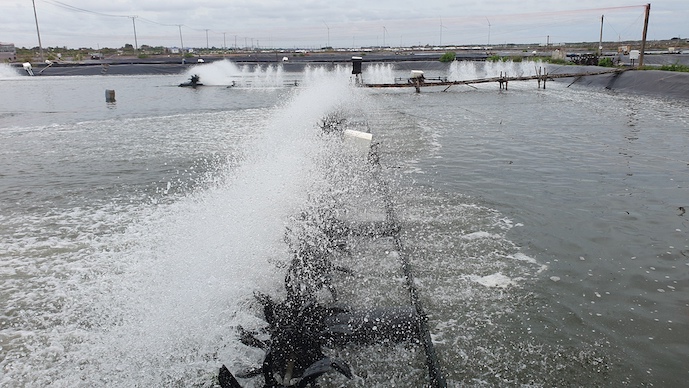HCMC – The application of science and technology in agriculture is the key to handling land degradation and non-expandable farmland amid the increasing food demand, heard an international conference on sustainable development in the Mekong Delta – SDMD 2022.
This conference, entitled “Science and technology, a stimulus for renovation and sustainable development”, was held by the University of Can Tho on October 30 in Can Tho City.
According to Le Van Vang, director of the Agriculture School at the University of Can Tho, the agricultural cultivation of Vietnam, especially the Mekong River Delta, has been pushed to the limit and is suffering from severe degradation due to erosion, soil discoloration and saltwater intrusion.
In addition, climate change negatively impacts agriculture production; therefore, food safety and security will be more severely affected in the coming years.
Hi-tech agriculture is the key to securing the food supply, given a decline in agricultural production, the director advised.
Shifting agriculture into an ecological, effective and advanced scientific application sector to increase quality and create added value for agriculture is also detailed in Resolution No.19, adopted on June 16, 2022 at the 5th plenum of the Party Central Committee.
Therefore, the application of science and technology in agriculture to optimize land use efficiency and productivity, reducing the negative impact of agricultural production on the environment, is an appropriate way to satisfy the requirements for food security and sustainable development in the Mekong Delta region.
To develop hi-tech agriculture effectively and sustainably, four groups of elements should be integrated into a system: agricultural production, information technology, other technologies such as biological, automatic, mechanical technologies and production management, suggested Vang.
One of the difficulties of the Mekong Delta region in the application and development of hi-tech agriculture is the lack of a qualified workforce as only 7% of the region’s total population have university qualifications, said Ha Thanh Toan, president of the University of Can Tho.
According to him, to enhance the workforce quality of the Mekong Delta region, besides adopting a new curriculum, classification of training level and science and technology renovation, gaps in policies need to be resolved to achieve the highest efficiency.
At the conference, the University of Can Tho signed cooperation agreements with eight local and international organizations to enhance the effectiveness of qualified workforce education, contributing to the socioeconomic development of the Mekong Delta region.











